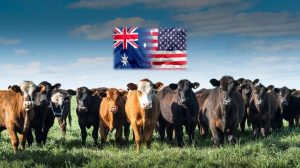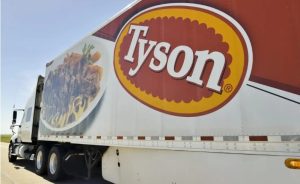
MELBOURNE, AUSTRALIA – Australia announced it will reduce restrictions on U.S. beef imports in a move U.S. President Donald Trump’s administration claimed as a major victory over “non-scientific trade barriers.”
Agriculture Minister Julie Collins said Thursday that relaxing the restrictions designed to keep Australia free of mad cow disease, also known as bovine spongiform encephalopathy or BSE, would not compromise biosecurity.
While US beef has technically not been banned from Australia since 2019, a lack of country of origin labeling in the U.S., ensuring that beef has not come from Canada or Mexico, have prevented it from being able to export to Australia.
The recent announcement will allow for expanded access to include beef sourced from cattle born in Canada or Mexico which is currently legally imported and slaughtered in the US. but isn’t labeled as to the country of origin.
American exporters will have to demonstrate full traceability back to U.S. birth place, production and processing, in order to export to Australia.
The White House had cited the restrictions when explaining tariffs imposed on Australia in April, and US authorities reacted to the news by saying the “major trade breakthrough” would “Make Agriculture Great Again”.
Trump attacked Australian import restrictions on U.S. beef when he announced in April that tariffs of at least 10% would be placed on Australian imports, with steel and aluminum facing a 50% tariff.
The Australian government has denied the timing of the decision was related to the trade tiff, saying a decade-long department review found the US had improved beef safety measures.
U.S. Secretary of Agriculture Brooke L. Rollins responded to Australia’s announcement by congratulating Trump on a “major trade breakthrough that gives greater access to U.S. beef producers selling to Australia.”
“This is yet another example of the kind of market access the President negotiates to bring America into a new golden age of prosperity, with American agriculture leading the way,” she said in a statement.
The timing of the new, reduced restrictions has not been finalized.
Lawmaker fears appeasing Trump endangers Australian cattle industry
According to AP reporting, Opposition lawmaker David Littleproud suspected the government was endangering Australia’s cattle industry to appease Trump.
“I want to see the science and it should be predicated on science. I’m suspicious of the speed at which this has been done,” Littleproud told reporters.
“We need to give confidence to the industry, but also to you (the public): this is not just about animal welfare, this is about human welfare, this is about BSE potentially coming into this country and having a human impact, so I think it’s important the government’s very transparent about the science and I don’t think it’s even beyond the question to have an independent panel review that science to give confidence to everybody,” he added.
Around 70% of Australian beef is exported. Producers fear that the export market would vanish overnight if diseases, including mad cow or foot-and-mouth disease, infected Australian cattle.
Will Evans, chief executive of Cattle Australia, who represents more than 52,000 grass-fed beef producers across the nation, said he was confident the agriculture department had taken a cautious approach toward U.S. imports.
“The department’s undertaken a technical scientific assessment and we have to put faith in them. They’ve made this assessment themselves. They’ve said: ‘We’ve looked at this, we’ve looked at the best science, this is a decision that we feel comfortable with,’” Evans said.
“When you have a $75 billion (Australian $50 billion) industry relying on them not making this mistake, I’m sure they’ve been very cautious in their decision-making,” he added.
Australian demand for U.S. beef is likely to remain low for reasons including a relatively weak Australian dollar.
The two countries have had a bilateral free trade deal for 20 years, and the U.S. has maintained a trade surplus with Australia for decades.





